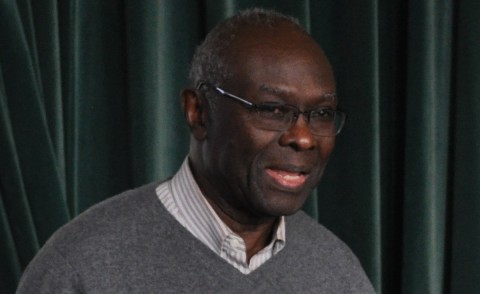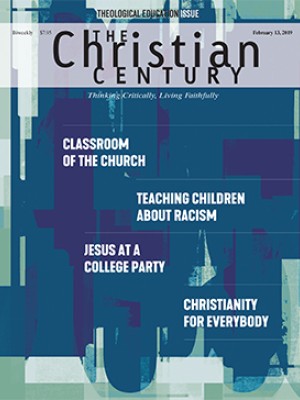Lamin Sanneh, scholar of Christian missions, dies at age 76
Sanneh challenged the idea that Christianity was merely a tool of colonialism.

Lamin Sanneh, a major figure in the fields of Christian missions and world Christianity, died on January 6 after having a stroke, Yale Divinity School announced. He was 76.
Born in Gambia to a family with ancient royal heritage, his scholarship spanned four continents both as a student and a teacher. Sanneh was professor of missions and world Christianity at YDS, having taught there since 1989.
Previously, he was on the faculty at the University of Ghana, the University of Aberdeen, and Harvard University.
Sanneh and Andrew Walls, a professor at the University of Edinburgh, set up the Yale-Edinburgh annual conferences on mission history and world Christianity.
In those areas, he was “one of the architects of the discourse as we now know it,” Walls wrote in a tribute. Sanneh “changed the way people think on important matters” particularly through his book Translating the Message: The Missionary Impact on Culture (2009). “He has advanced the study of both Christianity and Islam in Africa with major works; he has also advanced understanding between Christians and Muslims in active relationships.”
Dana L. Robert, director of the Center for Global Christianity and Mission at Boston University School of Theology, called Sanneh “a giant in the field of World Christianity.”
“As an African, a superb scholar, and a convert from Islam, Lamin Sanneh saw from the outside what those raised on the inside could not,” she wrote. “He challenged the assumption that Christianity was merely a tool of Western colonizers.”
Read our latest issue or browse back issues.
Thomas John Hastings, executive director of the Overseas Ministries Study Center in New Haven, remembered Sanneh as “a rare scholar who combined rhetorical eloquence with scholarly erudition, and religious conviction with child-like curiosity. Arguing, for example, that the missionary movement’s greatest gift to the peoples of the world was Bible translation, he liked to say, “It is not so much that the West transmitted the gospel to world but that the cultures of the world discovered the gospel when they heard the Bible in their mother tongues.’”
Sanneh was an editor-at-large for the Christian Century for many years.
Of the more than 20 books Sanneh authored or edited, another of the best known is Whose Religion Is Christianity? The Gospel Beyond the West (2003). In 2012 he published his autobiography, Summoned from the Margin: Homecoming of an African.
William Willimon wrote in his review for the Century that it is “one of the great spiritual autobiographies of our age.” Willimon noted that Sanneh remained both appreciative and critical of Islam while also recounting the rebuff he received from both missionaries and mainline North American pastors. Sanneh did not “flinch from describing the racism he encountered in churches in New York and New England when he was a student, and he tells the truth about the racism and cultural prejudices he encountered as a faculty member in the Ivy League.”
In a 1987 essay for the Century, Sanneh identifies the cause of that rebuff from liberal Christians as “the Western guilt complex” about mission. Sanneh offered the crucial insight that to translate scripture into common language “asserts that the sacred message may legitimately be entrusted to the forms of everyday life. Translation also relativizes culture by denying that there is only one normative expression of the gospel, it results in a pluralism in which God is the relativizing center.”
Another result of this translation effort was that missionaries helped to preserve local languages and begin the work of ethnographic research that could be evaluated and built upon by indigenous scholars.
“Here was an acute paradox: the vernacular scriptures and the wider cultural and linguistic enterprise on which translation rested provided the means and occasion for arousing a sense of national pride, yet it was the missionaries—foreign agents—who were the creators of that entire process,” he wrote. “I am convinced that this paradox decisively undercuts the alleged connection often drawn between missions and colonialism. Colonial rule was irreparably damaged by the consequences of vernacular translation.”
A version of this article, which was edited February 4, appears in the print edition under the title “People: Lamin Sanneh.”







